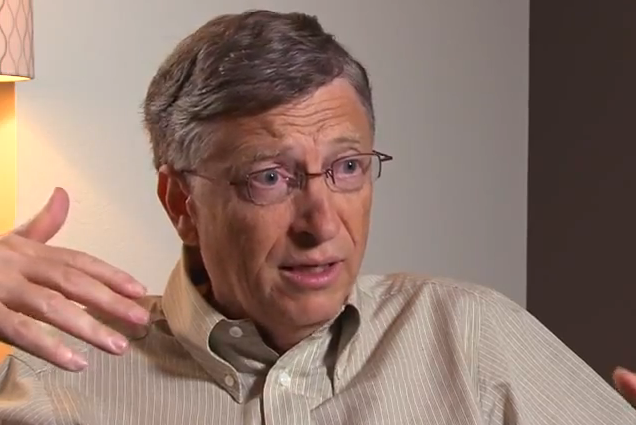Bill Gates skeptical of regulators breaking up tech giants

All the latest news, reviews, and guides for Windows and Xbox diehards.
You are now subscribed
Your newsletter sign-up was successful
What you need to know
- Bill Gates expressed skepticism toward the idea of breaking up tech giants in a new interview.
- Speaking to Bloomberg, Gates came out more in favor of regulating bad practices, stating that he only sees a "narrow set of things" that he thinks a break up would be the "right answer to."
- Gates' comments come after the U.S. government announced an antitrust probe of Google, Facebook, Amazon, and Apple.
In a new interview with Bloomberg today, Microsoft co-founder an current board member Bill Gates expressed skepticism toward the idea of breaking up tech giants (via Engadget). Prompted by Bloomberg on his opinion of the U.S. government's recently initiated probes of Google, Amazon, Facebook, and Apple over antitrust concerns, Gates expressed his view that regulation is more often a better approach than potentially breaking up tech giants into separate companies.
"If there's a way a company's behaving that you want to get rid of, then, you know, you should just say, okay, that's a banned behavior," Gates said. "Splitting the company in two and having two people doing the bad thing, that doesn't seem like a solution."
Gates went on to say that it's a "pretty narrow set of things" to which he thinks breakups would be "the right answer to." When pressed on whether tech companies may be abusing their positions in relation to the economy, Gates touched on the government's role in ensuring changes to tax rules. "The fact that the tax rules incent you to structure in a certain way to minimize your taxes, people should look at if they want to change that going forward," Gates said.
Touching on the perceived role of social media in fomenting radicalization on political extremes in recent years, Gates sees a role for government to play in setting rules and regulations to help temper polarization. "I see these as well-meaning, highly innovative companies that it's up to society to make sure that their innovation doesn't have negative side effects."
Gates is intimately familiar with antitrust investigations, as Microsoft was initially slated to be broken up after an antitrust case brought by the U.S. Department of Justice. After Microsoft appealed that decision, the company reached a settlement with the government that prevented the company from being required to break up in exchange for meeting certain regulatory requirements.
While at the Federal level, the Federal Trade Commission and Department of Justice are still deciding whether to open a full investigation into the four companies they're probing, 50 state attorneys general recently launched their own probe of Google.
All the latest news, reviews, and guides for Windows and Xbox diehards.

Dan Thorp-Lancaster is the former Editor-in-Chief of Windows Central. He began working with Windows Central, Android Central, and iMore as a news writer in 2014 and is obsessed with tech of all sorts. You can follow Dan on Twitter @DthorpL and Instagram @heyitsdtl.
